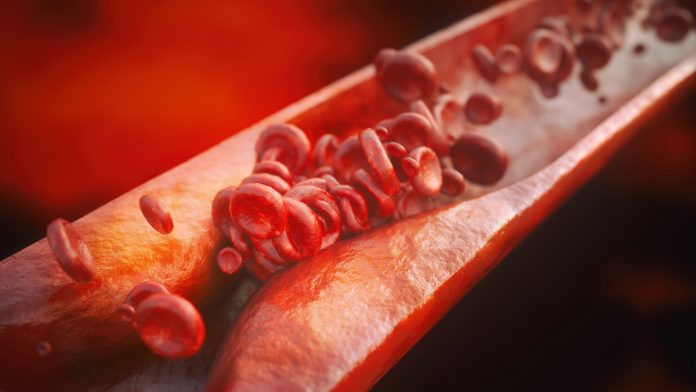
Atherosclerosis and arterial stiffness in adolescents may be caused by low-grade inflammation, according to an international research team.
It is understood that low-grade inflammation is a major cause of the build-up of fats and cholesterol in the artery walls, known as atherosclerosis. Low-grade inflammation can also cause circulatory, musculoskeletal, gastrointestinal, and nervous system diseases in adults and it is known that these conditions get worse with ageing and poor lifestyle habits. However, the reasons behind these conditions in young people and children remain unclear.
Researchers from the University of British Columbia, the University of Bristol, the University of Exeter, the University of Illinois, and the University of Eastern Finland have conducted an into these associations.
The full findings have been published in the Journal of Applied Physiology.
Inflammation can cause a range of health issues
“Contrary to some earlier findings, we now know that premature inflammation-induced vascular damage in adolescents, such as higher arterial stiffness and atherosclerosis, may cause elevated blood pressure, hypertension, insulin resistance, obesity, and elevated heart rate,” said Andrew Agbaje, a physician and clinical epidemiologist at the University of Eastern Finland.
In the study, 3,862 17 year old participants were followed for seven years until the age of 24. The results showed that one in three males and one in two females were at risk of higher and worsening inflammation by age 24. The researchers noticed that increased inflammation in males caused higher carotid wall thickness, which is a sign of preclinical atherosclerosis. The team were surprised to find that being overweight or obese did not cause negative effects of inflammation on premature vascular damage.
Increased inflammation in females was associated with higher arterial stiffness. These sex-specific negative effects of inflammation on different aspects of the blood vessels are novel findings, according to the researchers. They believe the findings could improve understanding of the pathogenesis of cardiovascular disease in early life, helping to provide optimised treatment options.
What can be done to avoid atherosclerosis in adolescents?
“The question that comes to mind is what could cause inflammation in healthy children and adolescents? Unfortunately, the type of diet a child is exposed to may significantly increase inflammation. For example, fruits, vegetables, and fibre-rich foods have significant anti-inflammatory properties and should be encouraged in the family,” said Agbaje.
“However, food rich in saturated and trans fats, salty and deep-fried food, red and processed meat, as well as sugary drinks, pastries, and candies may be associated with premature vascular damage since they can significantly raise inflammation,” he continued.
The researchers hope their findings will strengthen approaches to preventing premature vascular damage in adolescents. They have encouraged public health experts, paediatricians, health policymakers and families to opt for healthier diet choices. They have also suggested that governments should significantly lower the prices of fruits and vegetables through government subsidies and tax returns.









